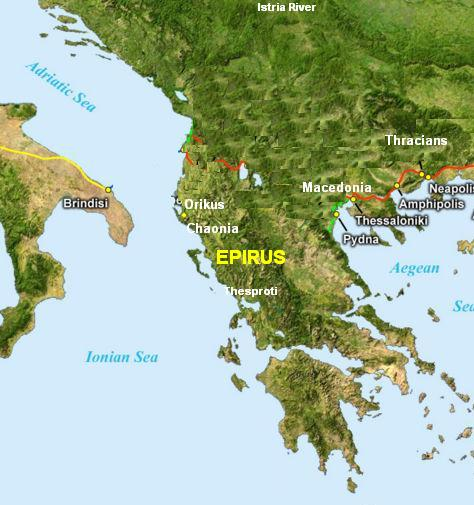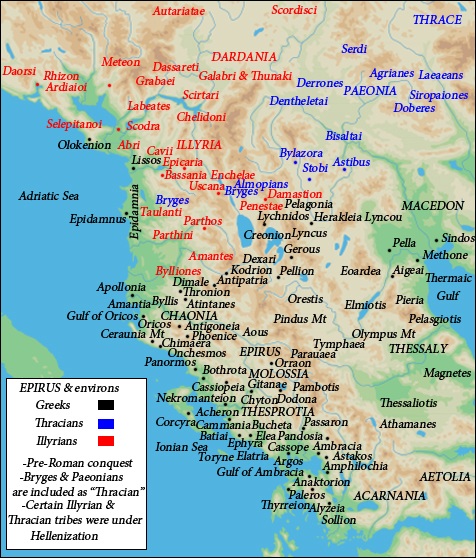THE CREDITS BELONG TO THE PELASGIANS
July 25, 2015
It is hard to find a nation or a race which has not changed during history; it is hard to find at least one modern nation who has remained exactly the same pure as their ancient grand-grand parents, but it is even harder to find a nation or a race which differ so much culturally and ethnically from their pretended ancestors. This nation is called Modern Greeks. Ironically, it is exactly the elite of the above nation, notoriously stressing out their pure and unaltered identity, although millennia distance this new nation from their ‘wannabe the same’ ancestors.
About 200 years ago, a new state was proclaimed, bearing the mysterious ancient name, Hellas. The new Hellenes began now to make every effort to bring about evidences of connections to their lost and forgotten ancestors. These ‘evidences’ although scarce, superficial and often speculative were intended to effect a junction between two very different realities, one lost and virtual but romantically suggested from some western scholars, the other so naked from anything great or noble. Not being for political reasons, even the most enthusiast of the Ancient Greeks among the western scholars would not have suggested the modern pre-revolution population having any tie to them.
A nation is usually a group of people, taken hand by hand for reasons like religion, language, origin or blood. When it comes to Ancient Hellenes, if we trust the old accounts about them, they were obviously not people of the same pure ethnic origin, but surely they had the same religion. This is the same to the modern Hellenes, what made these people of different ethnic background joining one-another hand by hand was by no means their common ethnic “Greek” origin, nor was their common “Greek” national conscience, but their religion, that was substantially different from the Ancient Greek one. The idea that Modern Greeks speak a continuation of the Ancient Greek language offers a wide field for improvements, and is just an illusion. The western scholars seem to have exaggerated the ties that connect Modern Greek language to the Ancient one, which by no means are natural. The modern Greek language clearly seems to be the continuation of the spoken official Byzantine Empire language, which came into being during the rule of Byzantine emperor Heraclius in 620 AD, since the knowledge of it remained the only possible way to learning. That was the only path through which the Byzantine Empire and Church were applying respectively their political and religious authority and power. So the term “Greek”, used so often during the Byzantine Empire lifetime(and after that) is not a term used to define an ethnic Greek, a descendent of mythical Achilles, Pericles or Leonidas, but one used toward a person who had political or religious powers, or/and a person who is not illiterate, who at least know how to write and read his name in the only written language available.
For as long as the last 200 years the new nation of the Greeks is creating myths and making claims, based only on mythical stories of the past, now on become like a sport.
The most preferred thesis are those based on historical stereotypes, choosing selective quotes from ancient and modern authors, and the people doing this job look like a bunch of notorious whistleblowers. The internet is the place where the noise of this propaganda takes an epic shape, and although its myths are being exposed everyday, it keeps recycling the same myths over and over again. One very romantic Greek quote is the following :
Αρχή Ελλάδος από Ωρυκίας και αρχέγονος Ελλάς Ήπειρος
Greece starts at Oricus and the most ancient part of Greece is Epirus.
This is a quote, pretended to be a statement of Ptolemy, the geographer. Today this quote is used from many kinds of internet rats, but about a century ago, had been used as an official argument from the Greek state representatives, to include within Greece, the lands which starts at Orikus, or otherwise called Epirus.
Of course this argument had been dismissed from European officials as unreliable, Read more of this post






Recent Comments